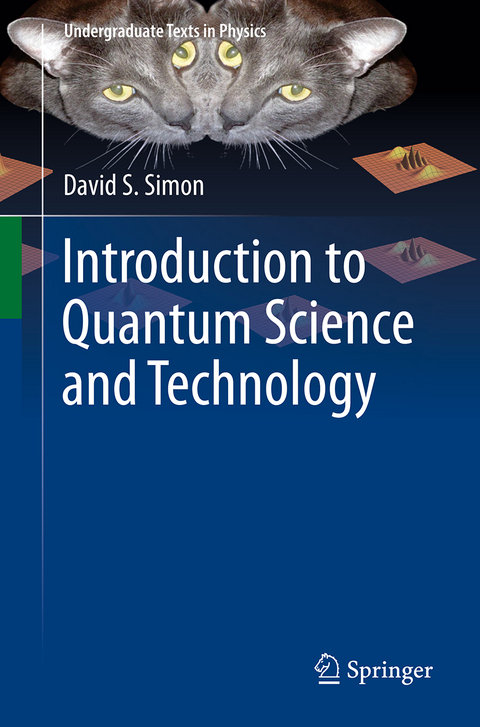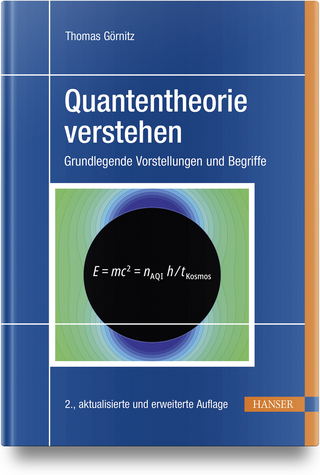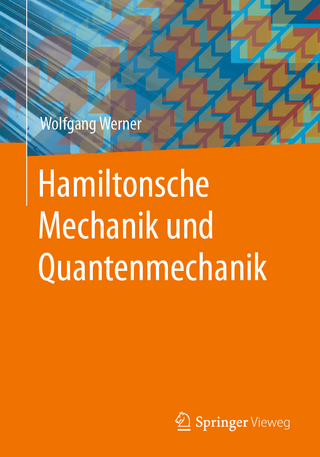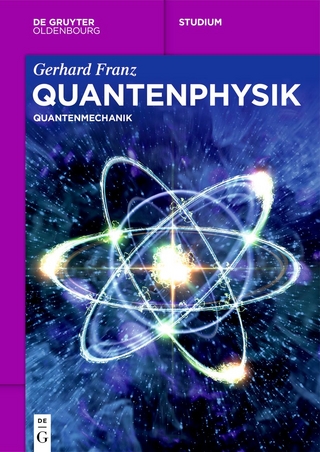
Introduction to Quantum Science and Technology
Springer International Publishing (Verlag)
978-3-031-81314-6 (ISBN)
- Noch nicht erschienen - erscheint am 04.04.2025
- Versandkostenfrei
- Auch auf Rechnung
- Artikel merken
This textbook serves as a comprehensive introduction to quantum technology for advanced undergraduate and beginning graduate students in physics and engineering. It provides readers with an in-depth overview of the wide range of quantum technology applications, from more well-known areas of quantum computing and quantum cryptography to lesser-known applications such as quantum communication, quantum-assisted measurement and sensing, and quantum microscopy. This book only assumes that the reader has had the standard courses in quantum mechanics and electromagnetism that are normally taken by physics majors during their sophomore or junior years.
The overall structure of this textbook is divided into four parts. Part I covers background material in elementary quantum mechanics, electromagnetism, optics, solid state physics, and other areas. Since the quantum states required for applications can exist in many types of physical systems, a broad background in many areas of physics is needed. This part of the book aims to ensure that all students have the necessary prerequisites, and to fill any gaps in their prior backgrounds. Part II covers additional topics in quantum mechanics beyond the basics. This includes topics such as interference of quantum states, unusual quantum effects that can be useful for applications, and the quantification of the amount of information carried by a quantum state. Part III is the heart of the book, discussing applications of the material from the previous chapters to real world problems such as high precision measurement, high resolution microscopy, quantum cryptography, and quantum information processing. Part IV covers more practical aspects, discussing detectors, light sources, atomic systems, and other topics that are essential for experimental implementation applications that were described from a more theoretical viewpoint in Part III.
Each chapter also contains worked examples, additional problems, as well as supplementary "highlighted boxes" containing interesting applications, historical asides, advanced topics, or recent cutting-edge developments. This self-contained textbook provides a foundation for undergraduates that will prepare them to immediately enter quantum-based graduate research or to give them a head start when seeking employment in quantum-related industries.
Dr. David Simon is a Professor in the Department of Physics and Astronomy and the Department of Engineering at Stonehill College. In addition, he is a visiting researcher in the Department of Electrical and Computer Engineering and the Photonics Center at Boston University. In 1993, Dr. Simon received his PhD in Theoretical Physics from John Hopkins University and in 2011; he received his PhD in Electrical Engineering from Boston University. His research expertise lies in quantum and nonlinear optics, photonics, optical engineering, mathematical physics, quantum field theory, and quantum mechanics. Dr. Simon is also the author of "Topology in Optics: Tying Light in Knots" (2018), "A Guided Tour of Light Beams: From Lasers to Optical Knots" (2016), "Quantum Metrology, Imaging, and Communication" (2017), and "Basic Theory and Experiment in Physics" (2003), as well as the co-editor of "Quantum Arrangements: The Life and Work of Michael J. Horne" (2021).
1 Introduction and Preliminaries.- 2 Classical Optics and Optical Devices.- 3 Quantum Mechanics.- 4 Elements of Solid State and Atomic Physics.- 5 Light and Matter.- 6 Angular Momentum, Spin, and Two-State Systems.- 7 Superconductivity.- 8 Classical Information and Classical Computation.- 9 More on Quantum States.- 10 Quantum Interference.- 11 More Interference and Measurement Effects.- 12 Quantum Bits and Quantum Information.- 13 Quantifying Entanglement.- 14 EPR, Bell Inequalities, and Local Realism.- 15 Gauge Fields and Geometric Phases.- 16 Quantum Computing: General Considerations.- 17 Quantum Computing: Algorithms.- 18 Quantum Communication and Quantum Cryptography.- 19 Quantum-Enhanced Metrology and Sensing.- 20 Quantum Imaging and Related Topics.- 21 Topological Materials.- 22 Optical Sources and Detectors.- 23 Nuclear Magnetic Resonance.- 24 Atomic and Ionic Systems.- 25 Resonant Cavities and Cavity Quantum Electrodynamics.- 26 Solid State Qubits.- 27 Future Prospects and Guide to Additional Topics.
| Erscheint lt. Verlag | 4.4.2025 |
|---|---|
| Reihe/Serie | Undergraduate Texts in Physics |
| Zusatzinfo | X, 875 p. 262 illus., 191 illus. in color. |
| Verlagsort | Cham |
| Sprache | englisch |
| Maße | 155 x 235 mm |
| Themenwelt | Naturwissenschaften ► Physik / Astronomie ► Quantenphysik |
| Naturwissenschaften ► Physik / Astronomie ► Theoretische Physik | |
| Schlagworte | Quantum Communication • Quantum Computing • quantum entanglement • Quantum Imaging • Quantum information processing • Quantum materials • quantum metrology • quantum sensing • Quantum Technology • quantum technology textbook • Topological Materials |
| ISBN-10 | 3-031-81314-6 / 3031813146 |
| ISBN-13 | 978-3-031-81314-6 / 9783031813146 |
| Zustand | Neuware |
| Informationen gemäß Produktsicherheitsverordnung (GPSR) | |
| Haben Sie eine Frage zum Produkt? |
aus dem Bereich


